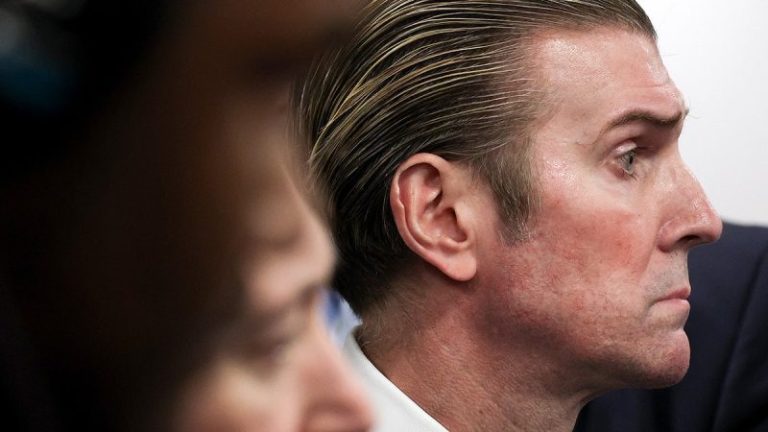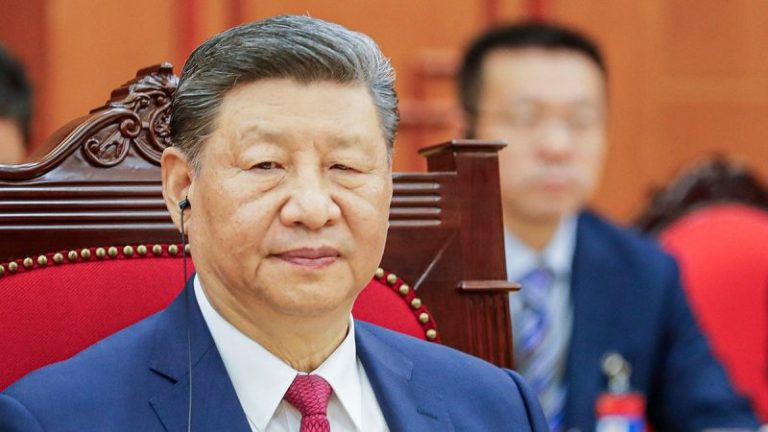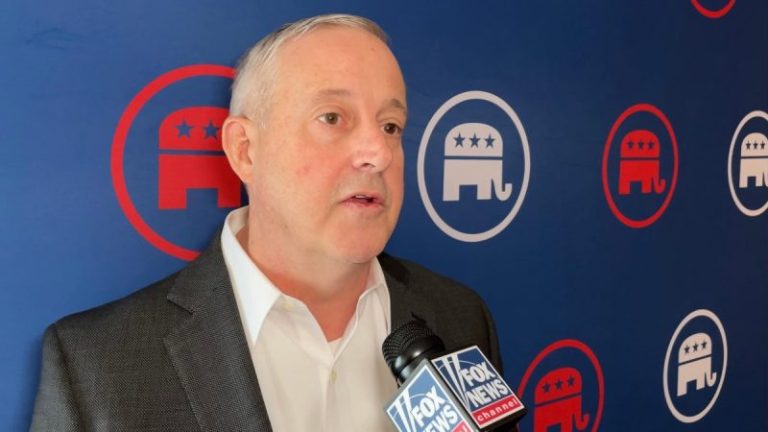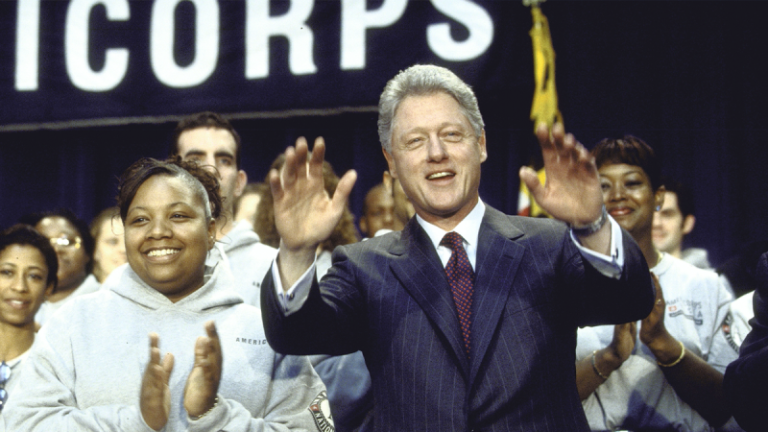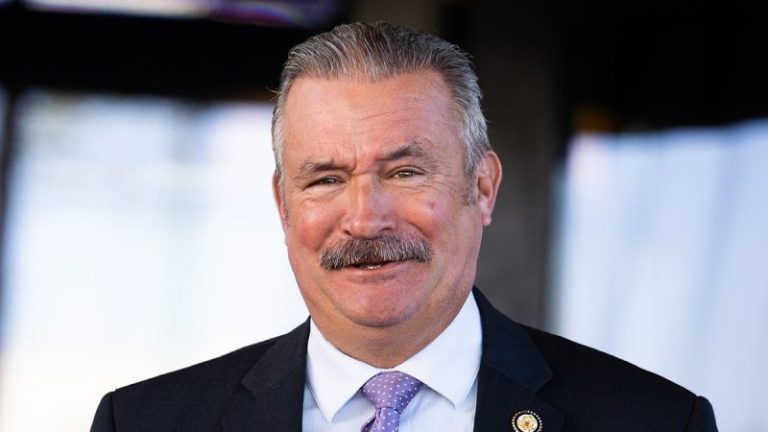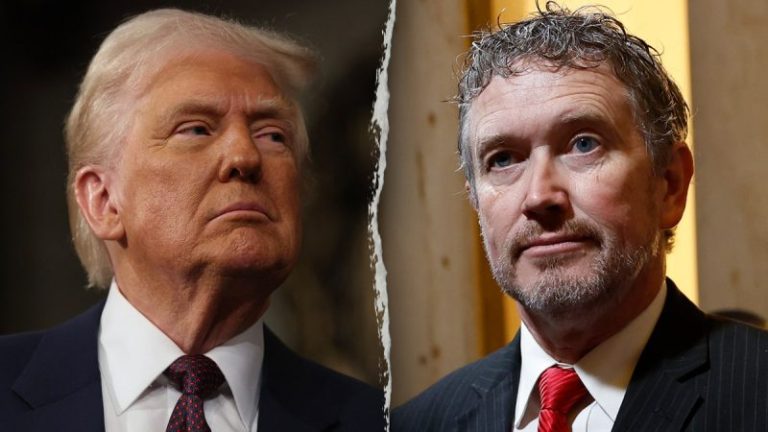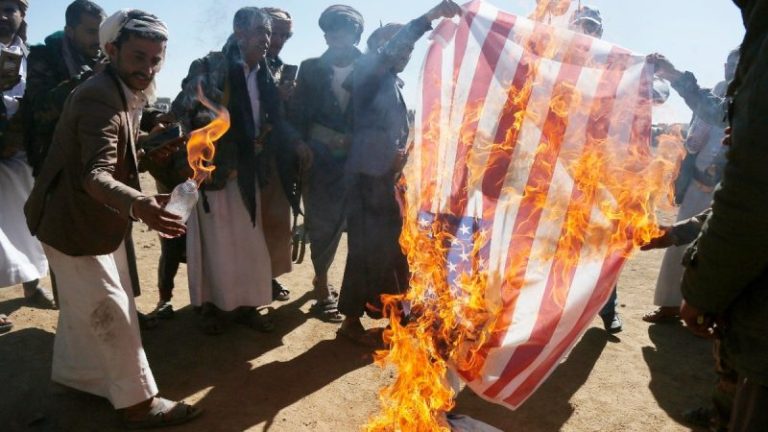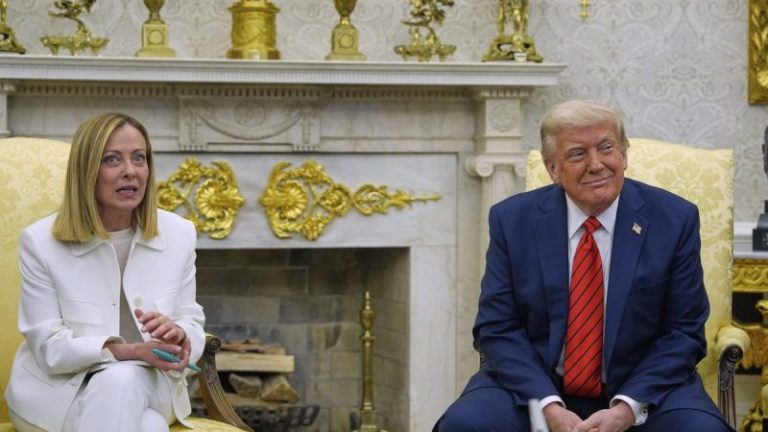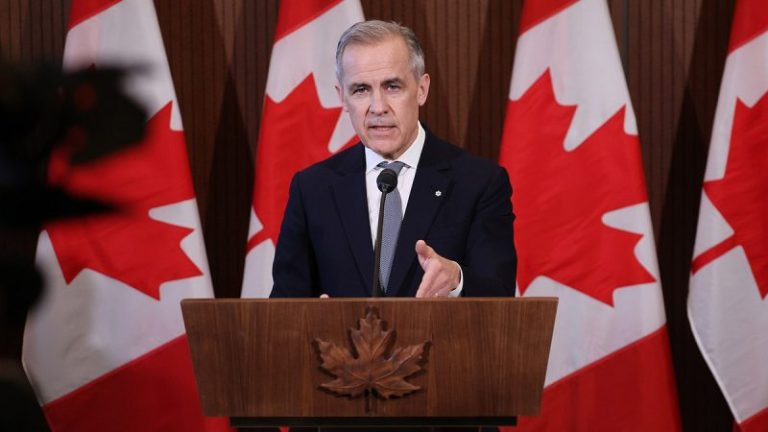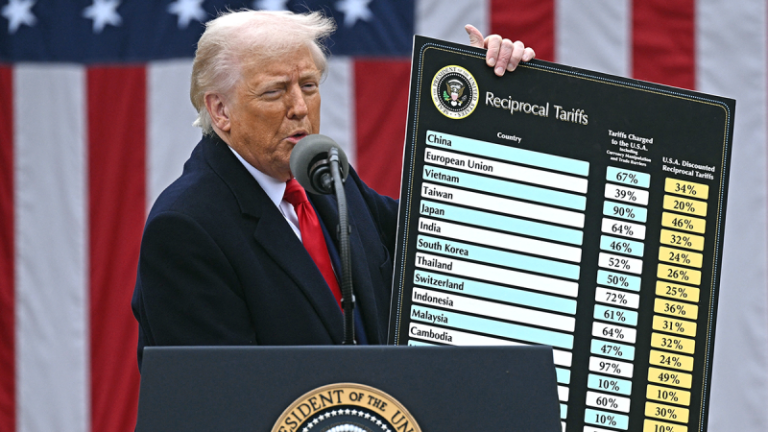Conservatives are speaking out against the Trump administration’s plans to finally enact long-expected REAL ID laws in a bid to crack down on illegal immigration.
‘If you think REAL ID is about election integrity, you’re going to be sorely disappointed. Someone has lied to you, or you’re engaged in wishful thinking. Please don’t shoot the messenger,’ Rep. Thomas Massie, R-Ky., wrote on X earlier this week.
Responding to Department of Homeland Security (DHS) Secretary Kristi Noem’s video announcing the May 7 REAL ID deadline, the former vice presidential candidate and Alaska Gov. Sarah Palin questioned in a lengthy post: ‘Or what?? Evidently, existing ID requirements for American citizens just aren’t adequate now, so Big Brother is forcing us through more hoops for the ‘right’ to travel within our own country.’
Palin continued: ‘Other administrations delayed this newfangled, burdensome REAL ID requirement. Are you curious why its implementation is imperative now?? And who came up with this?’
The REAL ID Act was passed in 2005, but the federal government has yet to implement it 20 years later. It requires all U.S. travelers to be REAL ID compliant when boarding domestic flights.
The Transportation Security Administration (TSA) announced last week that REAL ID would go into effect May 7, and that no other state-issued ID cards would be accepted for air travel.
TSA senior official Adam Stahl said in the announcement that REAL ID ‘bolsters safety by making fraudulent IDs harder to forge, thwarting criminals and terrorists.’
While an overwhelming majority of Republicans appear to have few issues with the change, some on the right have cried foul.
Massie argued in an X post, ‘As long as the pilot’s door is locked and no one has weapons, why do you care that someone who flies has government permission? REAL ID provides no benefit, yet presents a serious risk to freedom. If a person can’t be trusted to fly without weapons, why are they roaming free?’
Massie targeted President Donald Trump more directly in response to another X user who asked whether he was opposed simply because of his differences with the commander in chief. The Kentucky Republican has been known for multiple public spats with Trump.
‘REAL ID is a 2005 George Bush-era Patriot Act overreach that went completely unenforced until Trump got into office. Let me guess: he’s playing 4D chess and I should just go along with it?’ Massie wrote.
Former presidential candidate and ex-House Rep. Ron Paul, R-Texas, wrote on X, ‘Homeland Security chief Kristi Noem announced Friday that the notorious PATRIOT Act-era REAL ID scheme would go into effect at the end of the month. REAL ID is one of the greatest threats to Americans’ civil liberties in decades.’
Kentucky state Rep. TJ Roberts, a Republican, agreed with Paul on social media, writing, ‘Repeal REAL ID!!’
New Hampshire state Rep. Joe Alexander, a Republican, added on the accusations, calling REAL ID a ‘violation of the 14th Amendment of the US Constitution,’ and writing, ‘the Federal Government should not be mandating ID for its citizens to travel between states. Just say NO.’
Cato Institute senior fellow Patrick Eddington told Fox News Digital, ‘I’m not aware of a single post-9/11 instance of an alleged or actual terrorist being apprehended, much less successfully boarding an airliner, with false ID credentials – which is the entire-stated rationale for REAL ID.’
Eddington argued it imposed unconstitutional burdens on people who are seeking to travel by air versus train.
‘If you got word that your mother had just had a stroke and her prognosis was uncertain, and you wanted to quickly fly home to be with her but couldn’t because you didn’t have a REAL ID-compliant ID card, that would be one very real-world example of a tangible harm this insane law could cause on literally a daily basis,’ he said.
‘The REAL ID Act effectively institutes a form of mass surveillance and verification that doesn’t discriminate between those who have given reason for suspicion and those who haven’t, which is why it should never have been enacted in the first place.’
Meanwhile, Trump ally Rep. Mark Alford, R-Mo., targeted critics in his own public statement.
‘The REAL ID Act was passed way back in 2005, 20 years ago!!!! It’s about time everyone stop dragging their feet. Quit scrolling through social media, quit complaining, get your info together, and get down to the DMV to get your REAL ID,’ Alford said Wednesday.
The DHS has argued that implementing REAL ID now will help the Trump administration further its goals in cracking down on illegal immigration.
A DHS memo obtained by Fox News Digital earlier this week argued in favor of its implementation, that REAL ID ‘closes the gaping vulnerabilities Biden’s policies created, preventing criminals and potential terrorists from exploiting our aviation system, as seen during 9/11 when fraudulent IDs enabled attacks.’
Trump administration allies have also pointed out that it is carrying out a directive by Congress that’s long been stalled, but that the current White House took no part in deciding.
Fox News Digital reached out to the White House and TSA for further comment. Massie’s spokesman said he was not available for an interview when reached by Fox News Digital.
Fox News Digital’s Cameron Arcand contributed to this report.
This post appeared first on FOX NEWS

